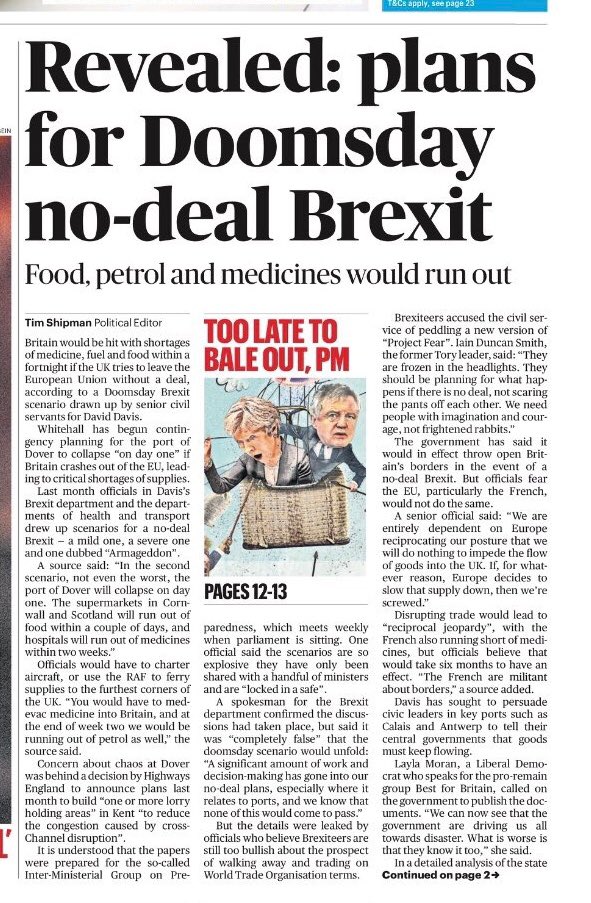Lavigne
Great Teacher
The Labour party's position is to maintain a customs union of sorts, however they're already starting to pay the price for that change in position. It's evident from the local elections last week that the split of the UKIP defectors going to the Tory and Labour parties is more heavily skewed towards the Tories than it was for the GE last year. Labour stood on a manifesto pledge to come out of the SM/CU - trying to weasel out of it now by obfuscating the matter with 'the' and 'a' isn't going to play well with a certain element of Labour voters. At a time when Labour should have been annihilating the Tories, the Tories are actually making advances almost everywhere outside of London and the metropolitan areas, particularly in leave-voting areas. May has been backed into a corner with those results - if the Tory vote in leave areas collapses then the Tories are finished.
The fundamental problem you have here, which has existed since day one, is that you have a Remain-supporting majority in parliament representing a leave-supporting public.
Someone should ask Grieve, Morgan, Soubry etc why they stood as Conservatives at the last GE. They stood, like Labour, on a manifesto pledge to leave the SM/CU - if they weren't happy with that then they should have stood for someone else, or as independents.
I think what we can expect to see when the Brexit bill comes back before Parliament, is that the amendments passed by the Lords will be flagged as confidence votes by the government - it's then up to the Tory rebels as to what they fear more - Brexit, or the possibility of Corbyn/the hard left in power.
I suspect that another GE will, this time more than last year, become a second referendum by proxy.
The fundamental problem you have here, which has existed since day one, is that you have a Remain-supporting majority in parliament representing a leave-supporting public.
Someone should ask Grieve, Morgan, Soubry etc why they stood as Conservatives at the last GE. They stood, like Labour, on a manifesto pledge to leave the SM/CU - if they weren't happy with that then they should have stood for someone else, or as independents.
I think what we can expect to see when the Brexit bill comes back before Parliament, is that the amendments passed by the Lords will be flagged as confidence votes by the government - it's then up to the Tory rebels as to what they fear more - Brexit, or the possibility of Corbyn/the hard left in power.
I suspect that another GE will, this time more than last year, become a second referendum by proxy.

